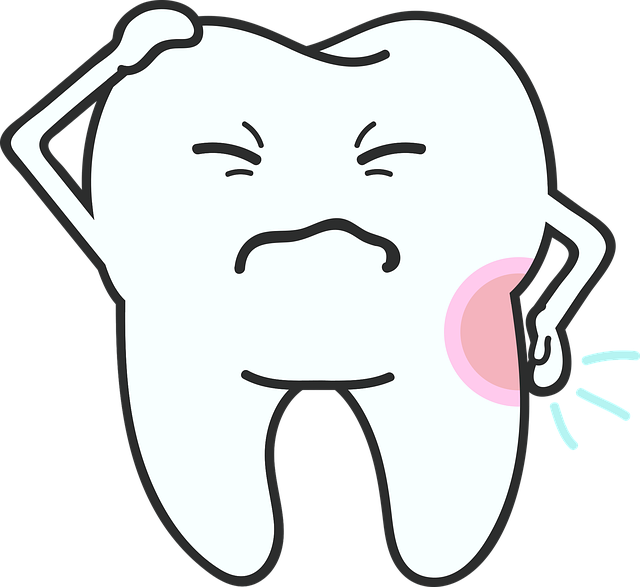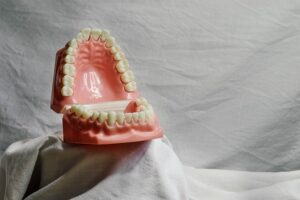Running a dental clinic requires specialized insurance solutions to mitigate liability risks, including accidents, malpractice, and data privacy breaches. Key components of a robust dentist business coverage policy include general liability, professional liability (errors and omissions), and dental malpractice insurance. Additionally, property insurance protects assets and ensures continuity. Effective risk management involves incident investigation, staff training, regulatory compliance, and tailored dentist business coverage. When selecting insurance, prioritize providers with comprehensive policies, strong financial backing, and positive claims handling reputations.
Dental clinics face unique challenges when it comes to liability and insurance. With various risks, from patient injuries to professional errors, a comprehensive insurance policy is crucial for any dentist business coverage. This article guides you through understanding dental clinic liability, essential insurance elements, different types of coverage, property insurance, claims management, and choosing the right provider. By the end, you’ll be equipped with the knowledge to navigate and mitigate risks effectively, securing your dentist business coverage.
- Understanding Dental Clinic Liability: Common Risks and Exposure
- Essential Elements of a Comprehensive Dental Insurance Policy
- Types of Coverage: Professional Liability, General Liability, and More
- Property Insurance for Dental Practices: Protecting Your Investment
- Navigating Claims and Risk Management Strategies
- How to Choose the Right Insurance Provider for Your Dentist Business Coverage
Understanding Dental Clinic Liability: Common Risks and Exposure

Running a dental clinic comes with unique challenges that require tailored insurance solutions. Understanding liability is a crucial step in protecting your dentist business coverage. Dental professionals face various risks, from accidental injuries during procedures to medical malpractice claims related to diagnoses or treatments. These potential liabilities can expose the clinic and its staff to significant financial losses.
Common risks include slip-and-fall accidents in the waiting room or treatment area, equipment malfunctions, and errors in patient records or medication administration. Additionally, dental clinics may be vulnerable to lawsuits if patients experience adverse outcomes or complications post-treatment, often leading to prolonged legal battles and substantial settlements. Adequate liability insurance is essential to safeguard against these exposures and ensure the financial stability of your dentist business coverage.
Essential Elements of a Comprehensive Dental Insurance Policy

When crafting a dental insurance policy, several key elements ensure comprehensive protection for your clinic and its professionals. Firstly, it’s imperative to cover general liability, which shields against claims of bodily injury or property damage occurring within your dental facility. This element safeguards your business from potential lawsuits.
Additionally, specific coverage for professional services is vital. Dental practices require insurance that addresses malpractice, accidental errors, and omissions, ensuring protection against claims related to treatments, diagnoses, or patient care. Comprehensive dentist business coverage should also include provisions for lost income, business interruption, and data privacy breaches, offering a robust safety net for your dental clinic’s unique risks.
Types of Coverage: Professional Liability, General Liability, and More

In the dynamic landscape of dental care, safeguarding your practice and ensuring comprehensive protection is paramount. The right insurance plan plays a pivotal role in mitigating risks and fostering the smooth operation of any dentist business coverage. Among the essential components are three primary types of coverage: Professional Liability, General Liability, and specialized Dental Malpractice Insurance.
Professional Liability Insurance, often referred to as Errors and Omissions (E&O) coverage, is crucial for dental professionals. It protects against claims arising from alleged professional negligence or errors in treatment. General Liability Insurance, on the other hand, covers accidents, injuries, or property damage that may occur within your clinic, safeguarding you against potential legal liabilities. Additionally, specialized Dental Malpractice Insurance addresses specific risks unique to dental care, ensuring that your business is shielded from costly lawsuits and settlements related to dental treatments.
Property Insurance for Dental Practices: Protecting Your Investment

Dental clinics, like any other medical facility, require robust property insurance to safeguard their valuable assets and ensure business continuity. This type of insurance protects against potential risks and disasters that could damage or disrupt operations, leading to significant financial losses. In the event of a fire, theft, or natural calamity, dental equipment, furniture, and records are covered, ensuring the practice can recover and resume services swiftly.
Property insurance for dental practices also offers liability business coverage, shielding against claims of bodily injury or property damage to patients. This is crucial as it helps manage legal fees and potential settlements, providing peace of mind knowing that your clinic is protected should any accidents occur on premises. Such comprehensive protection is essential for maintaining a successful dentist business, allowing owners to focus on delivering quality care rather than worrying about financial repercussions from unforeseen events.
Navigating Claims and Risk Management Strategies

Navigating claims and implementing robust risk management strategies are paramount for dental clinics to mitigate potential liabilities and ensure smooth operations. When a claim is filed, whether it’s related to patient injuries, malpractice, or property damage, prompt and thorough response is crucial. Dental businesses should have clear protocols in place for investigating incidents, documenting evidence, and communicating with both patients and insurance providers.
Effective risk management goes beyond handling claims. It involves proactively identifying vulnerabilities within the clinic’s operations and implementing preventive measures. This can include regular staff training on safety protocols, staying up-to-date with industry regulations, and investing in comprehensive dentist business coverage that caters to specific dental practice needs. By adopting these strategies, clinics can reduce the likelihood and impact of future claims, fostering a safer environment for patients and ensuring financial stability.
How to Choose the Right Insurance Provider for Your Dentist Business Coverage

When choosing an insurance provider for your dental clinic, it’s crucial to consider several factors that align with your dentist business coverage needs. Start by evaluating the breadth and depth of their dental-specific policies. You want a provider who offers comprehensive protection, including professional liability, general liability, property damage, and medical malpractice coverage tailored to dental practices. Check if they have experience insuring other dentists in similar specialties or practices to ensure they understand the unique risks associated with dentistry.
Additionally, look into the financial stability of the insurance company and their claims handling process. A reputable provider should have a strong track record of prompt claim settlements and efficient customer service. Read reviews and seek recommendations from fellow dentists who trust their insurer. Ensure that the policy terms and conditions are clear, transparent, and flexible enough to accommodate your clinic’s evolving needs. This diligence will help safeguard your dentist business coverage and ensure uninterrupted service to your patients.
